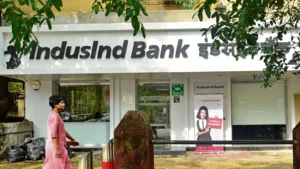In July 2024, WazirX—India’s largest crypto exchange at the time—became the epicenter of one of the country’s biggest digital asset heists. Hackers linked to the infamous Lazarus Group from North Korea drained over ₹2,000 crore ($235 million) worth of crypto from WazirX wallets. Users who trusted the platform woke up to see their funds evaporate—only to be told that it was a “force majeure” event, meaning the company claimed zero responsibility.
⚠️ How the Hack Was Pulled Off
- Multisig Security Breach: WazirX’s wallet structure used a multi-signature setup requiring its keys and those of its custodian, Liminal. Hackers exploited vulnerabilities to upgrade the smart contract, sidelining WazirX’s own control.
- Pre-Attack Practice Runs: Blockchain data later revealed that attackers tested their moves days before the final heist.
- Funds Drained: By the time the dust settled, the wallets were empty, leaving thousands of investors stranded.
🔍 Users Left to Fend for Themselves
The aftermath was brutal for retail investors:
- Withdrawals Frozen: WazirX stopped crypto withdrawals entirely, claiming no control over the stolen assets.
- No Reimbursements: The company made no commitment to return user funds.
- Legal Dead Ends: When 54 victims approached India’s Supreme Court seeking an investigation into WazirX’s leadership, the court dismissed the plea, stating crypto remained an unregulated sector in India.
- Failed Restructuring: A restructuring plan floated by WazirX’s Singapore parent—which might have used user holdings to settle debts—was rejected by courts overseas, killing hope for compensation.
- Delhi Court Steps In: Later, a Delhi court asked the CBI to consider taking over the ₹2,000 crore case, citing the scale and international links. But so far, no tangible progress has been made.
💰 30% Tax, Zero Protection
While investors were left with nothing, the Indian government still enforced its infamous 30% tax on crypto gains, plus a 1% TDS on every trade. This is taxation without protection: the state earns revenue from crypto activity but offers no regulation, no security, and no refund mechanisms for victims.
Critics have called this arrangement “a legalized scam,” where the government partners in gains but vanishes during losses.
🗣 Voices from the Community
Investors have taken to social media, forums, and legal avenues to vent their frustration:
- Retail Outrage: Many claim WazirX not only failed to secure funds but also blackmailed users into supporting its restructuring plan.
- Hashtag Campaigns: #JusticeForInvestors trended among the affected community, demanding regulatory action and refunds.
- Loss of Trust: Even veteran crypto users admitted they were blindsided, as WazirX marketed itself as a safe exchange with government tax compliance.
✅ Timeline of the Fallout
| Event | Outcome |
|---|---|
| July 2024 – Hack occurs | ₹2,000 crore drained from wallets |
| Post-Hack – Force majeure | WazirX freezes withdrawals; blames hackers |
| 2025 Supreme Court Case | Petition by victims dismissed; no regulation |
| 2025 Singapore Court | Restructuring plan rejected; no refunds |
| 2025 Delhi Court Action | CBI asked to consider probe; no resolution yet |
🚩 The Bigger Scam: Regulation Without Protection
The scandal exposes the worst of both worlds:
- Investors lost their funds with no safety net.
- WazirX walked away without liability.
- Government continued taxing crypto profits while refusing to regulate or safeguard the sector.
Essentially, users were scammed twice—once by hackers and again by the system that allowed this to happen.
Conclusion: Who Will Protect Indian Crypto Investors?
The WazirX hack wasn’t just a cybercrime; it was a systemic failure. The government collects taxes on crypto while shrugging off responsibility for investor protection. Without proper regulations, recovery mechanisms, and clear accountability, India’s crypto space remains a wild west—where only investors pay the price.
Until there is real regulation—not just taxation—ordinary users will remain the easiest targets in the game.



















